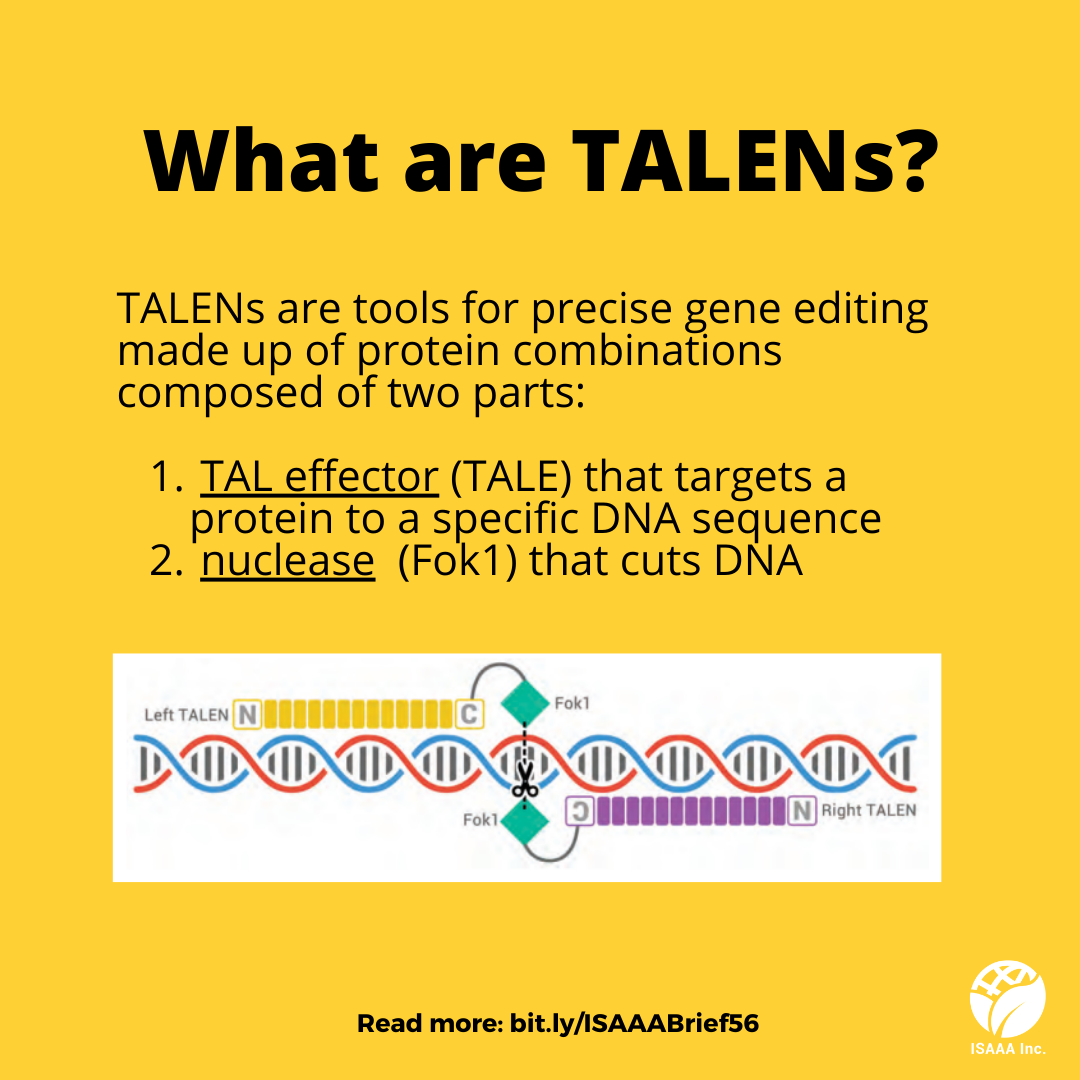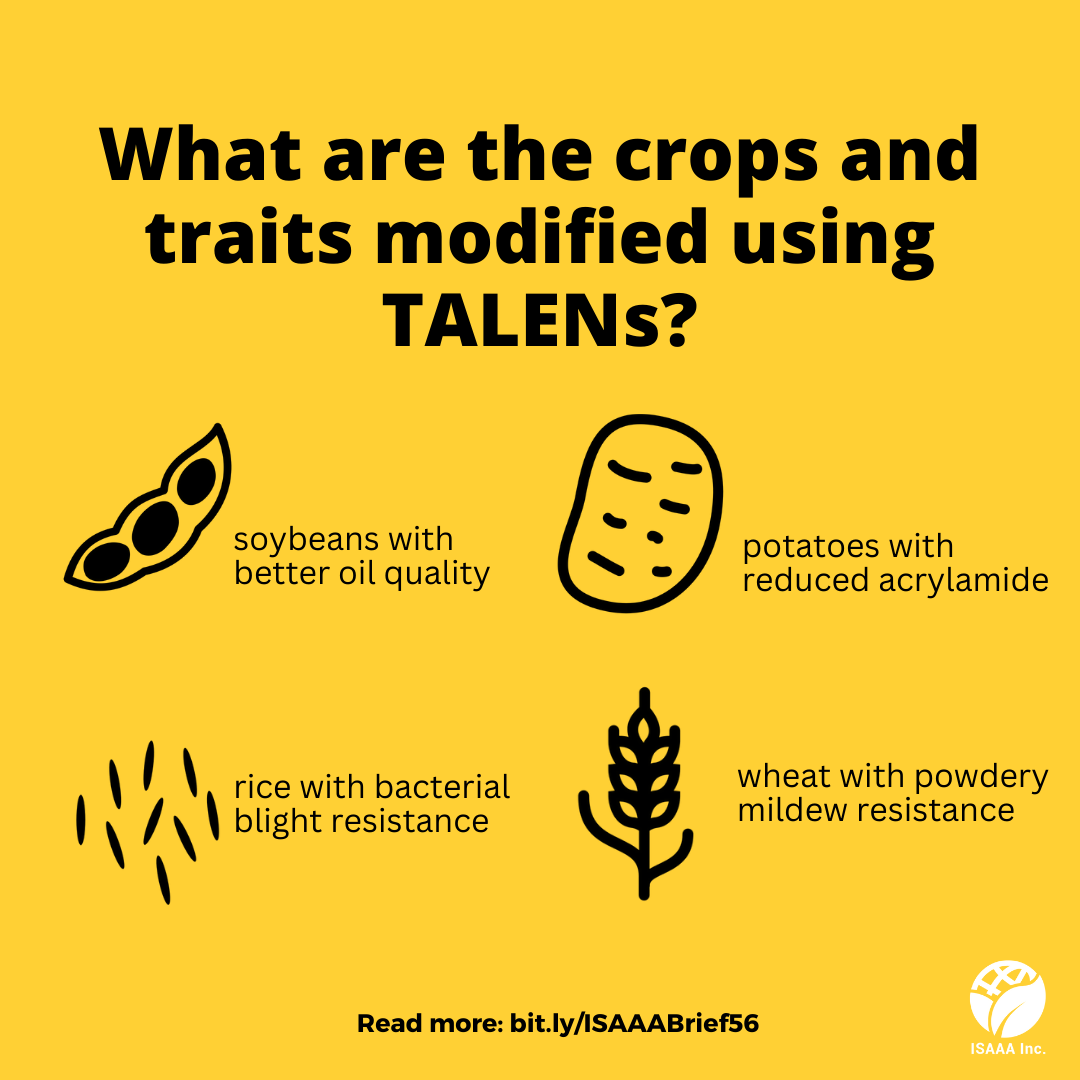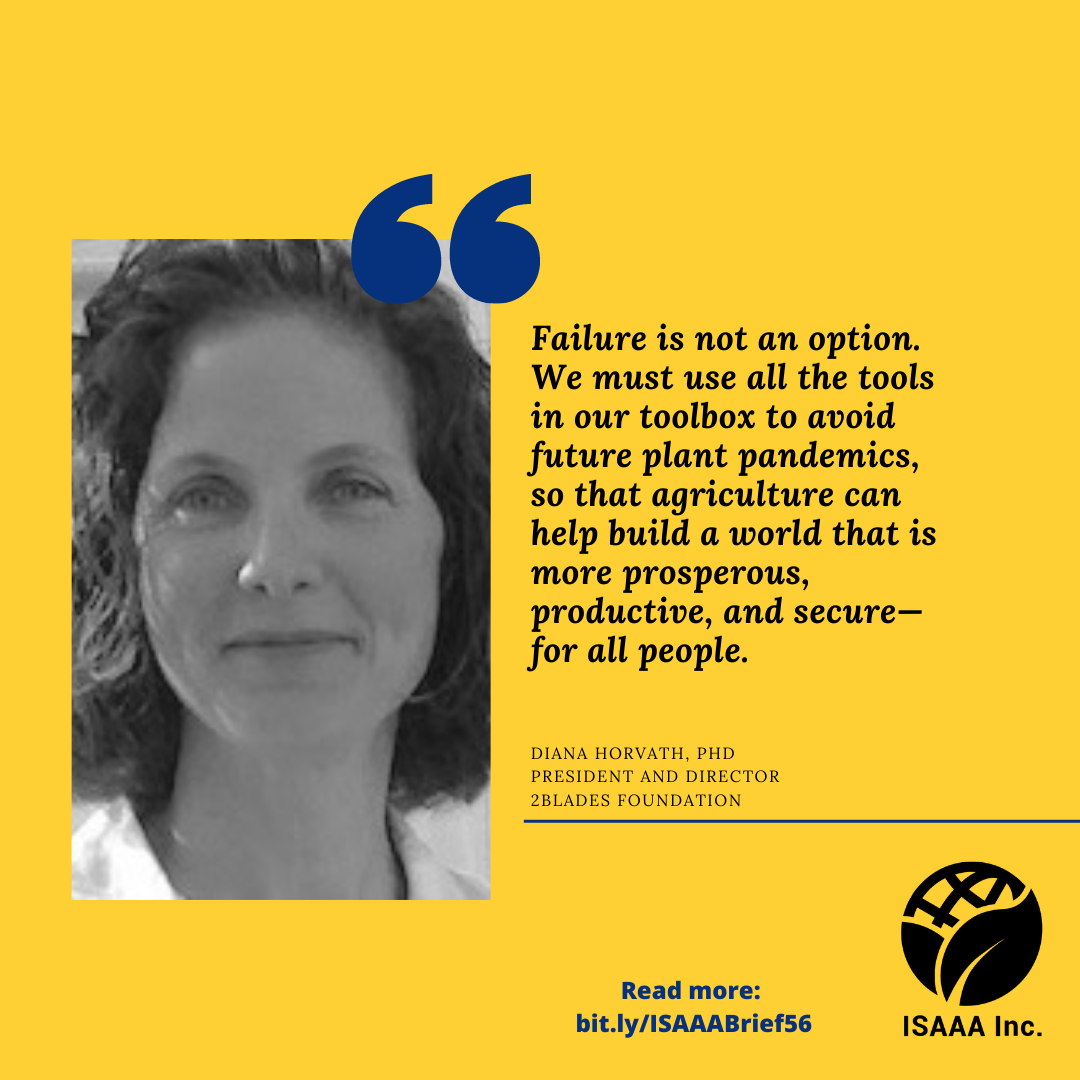How Can TALENs Help Feed the World by 2050?
| |
The United Nations estimates that the world population will be 9.7 billion by 2050. With the current challenges in food security, such as climate change and biotic and abiotic stresses, experts ask themselves, “How can we produce enough food for the additional 2 billion people who will join us by 2050?” The 2Blades Foundation President and Director, Dr. Diana Horvath, tackled this critical question in the chapter titled “From Molecule to Market: Using the Innovative TALENs Plant Breeding Tool to Help Build Global Food Security” featured in ISAAA Brief 56 Breaking Barriers with Breeding: A Primer on New Breeding Innovations for Food Security.
For 2Blades, a tool called TALEN is one of the answers to food security problems.
What are TALENs?
CRISPR is the most prevalent gene editing tool used by researchers worldwide. However, another promising tool has been developed to edit genomes, which is extremely precise in targeting any DNA sequence. This tool is known as transcription activator-like effector nucleases (TALENs).

TALENs are protein combinations composed of two parts: one part is the TALE that targets the protein to a specific DNA sequence and the second part is a nuclease (N) that cuts DNA. Fok1 is a nuclease that is commonly used in TALENs
According to Dr. Horvath, TALENs are unique because of the following reasons:
- Extremely precise and have capabilities beyond CRISPR
- Can target any DNA sequence with fewer errors
- Discriminate between DNA modifications like methylation that affect a gene’s expression
- Modify DNA in mitochondria and chloroplasts
- Improved crops using TALENs
To combat biotic stresses, TALENs can be utilized to edit genes and make crops more resistant to pathogens, confer new specificity to existing resistance genes to match evolving pathogens, and to target and modify the pathogen DNA itself.
TALENs have been successfully used to develop high-oleic soybean oil that is low in polyunsaturated fats; rice resistant to bacterial blight; potatoes with less browning, bitter taste, or potentially carcinogenic acrylamides; and wheat resistant to powdery mildew.

How can researchers use TALENs?
The 2Blades Foundation holds exclusive global rights for uses of the TAL Code and TALENs in plants. 2Blades has worked extensively to create simple, broad access to this versatile platform to improve the efficiency and precision of plant breeding.
For commercial applications, it has provided licenses on a non-exclusive, tiered basis to a wide range of users, from large commercial seed companies to smaller agribiotech companies. 2Blades also gives no-cost TALEN rights to non-profit and multilateral entities, such as the International Rice Research Institute, to facilitate the improvement of crop varieties and support innovation to benefit food security.
'No' to failures
With the world’s food supply at stake, Dr. Horvath stresses that failure to feed the world population is never an option. Growing more food with fewer inputs is necessary, together with the right innovations, or else millions of people would suffer from hunger, and economies could fail.

Read more from ISAAA Brief 56 - Breaking Barriers with Breeding: A Primer on New Breeding Innovations for Food Security.
| Newer Post | Archive | Older Post |
Science Speaks is ISAAA Inc.'s official blog. Weekly blog articles, authored by ISAAA writers, partners, and invited contributors, aim to help share, disseminate, and promote scientific knowledge and its vital role in achieving global agricultural sustainability and development. Your support to Science Speaks will help us achieve this goal. You can help us by donating as little as $10.

